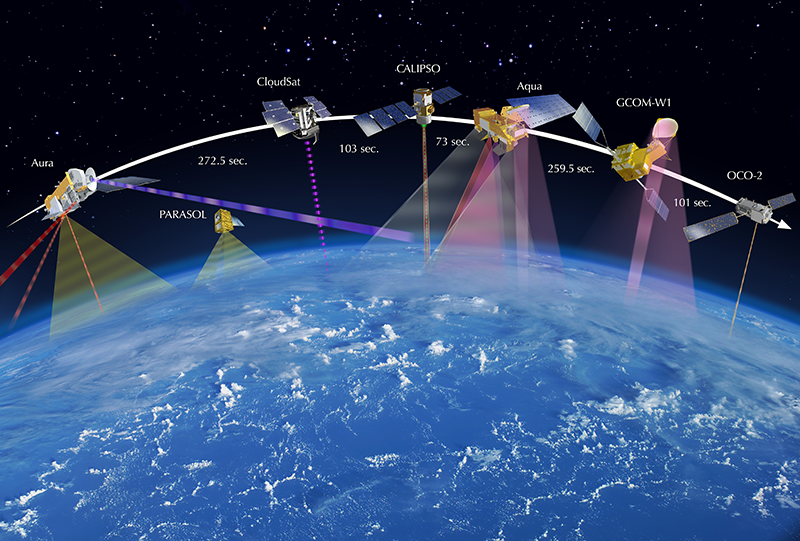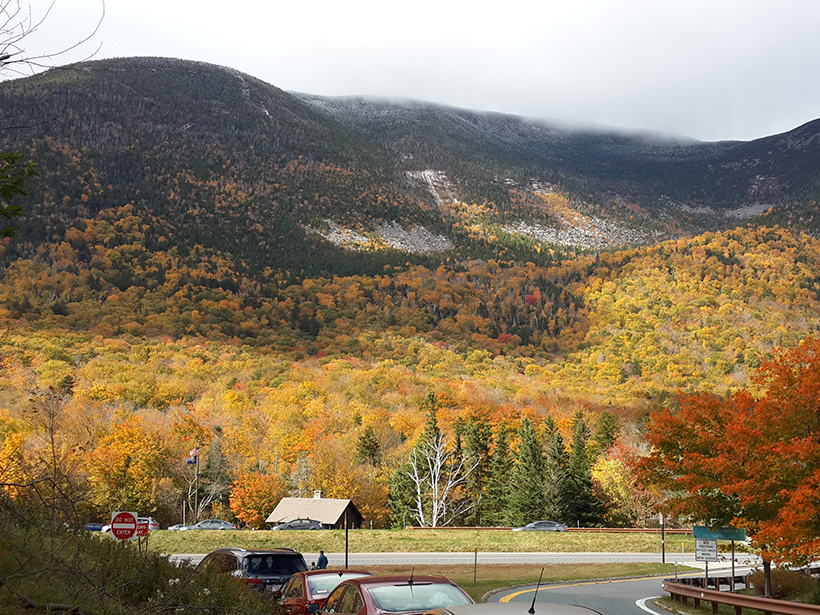One important step toward carbon management is developing the science that predicts carbon cycles. Over the past 10 years, the North American Carbon Program (NACP) has helped to significantly advance observation and monitoring systems in carbon cycle research. Observation and monitoring programs such as AmeriFlux and the National Ecological Observatory Network (NEON) are essential to improving understanding of the carbon cycle through diagnosing the magnitude, spatial patterns, and temporal variability of carbon fluxes and stocks.

Scientists met to examine the state of predictive carbon cycle research and to advance model capabilities.
However, the value of these programs would be greatly increased if their results could be used to constrain future projections of carbon cycle dynamics in response to climate change and human activities, including carbon management efforts. To examine the state of predictive carbon cycle research and to advance model capabilities, scientists met in College Park, Md., with members of the Carbon Cycle Interagency Working Group (CCIWG) in March 2016.
Participants had in-depth discussions on four themes:
- intrinsic predictability: the fundamental properties of the system that determine its future trajectory
- synthesis of experimental, observational, and modeling results to improve model predictive skills
- technical developments to implement predictive carbon cycle science
- recommendations to advance predictive carbon cycle science
Attendees also discussed specific science questions, including the following:
- What are the predictive skills of current regional and global carbon models?
- Why does the current generation of carbon cycle models have low predictive skills?
- To what extent are model predictive skills related to researchers’ knowledge of intrinsic predictability of the system?
- How can researchers synthesize results from experimental, observational, and modeling studies to improve model predictive skills?
In this context, workshop participants brainstormed needs and ideas for innovations in the carbon cycle research agenda so as to accelerate development of predictive carbon cycle science. The participants agreed that the new research agenda should be conducive to developing research capacity (e.g., infrastructure, human resources) that enables prediction of future trajectories of the global carbon cycle, with specified uncertainties, to inform decision-making on allowable carbon emissions at a level that will prevent dangerous consequences of climate change.

Workshop attendees produced a set of recommendations regarding the advancement of predictive carbon cycle science. One recommendation is to identify reasons why current global models cannot predict the carbon cycle adequately. Another is to improve predictive abilities of models by developing their data assimilation capabilities, thus enabling the integration of extensive sets of observations and experimental results with complex models. A third recommendation is to develop novel approaches to gradually improve predictive skills of global carbon cycle models. Such approaches could include syndicated measurement and modeling field campaigns in critical regions, as well as interactive model-experiment and model-observation systems.
One recommendation is to identify reasons why current global models cannot predict the carbon cycle adequately.
The workshop outcomes and the upcoming peer-reviewed publications are expected to inform related topics in Second State of the Carbon Cycle Report, a special U.S. Global Change Research Program (USGCRP) sustained assessment report being produced under the leadership of CCIWG/U.S. Carbon Cycle Science Program. These outcomes will also be used for planning the next decade of NACP.
The workshop was sponsored by CCIWG, established under the U.S. Carbon Cycle Science Program, under the auspices of USGCRP. The workshop was coorganized by Yiqi Luo from University of Oklahoma, Scott Denning from Colorado State University, and Gyami Shrestha from the CCIWG/U.S. Carbon Cycle Science Program Office at USGCRP.
—Jingfeng Xiao (email: [email protected]), Earth Systems Research Center, Institute for the Study of Earth, Oceans, and Space, University of New Hampshire, Durham; Yiqi Luo, Department of Microbiology and Plant Biology, University of Oklahoma, Norman; and Gyami Shrestha, U.S. Carbon Cycle Science Program Office, U.S. Global Change Research Program, University Corporation for Atmospheric Research, Washington, D. C.
Citation:
Xiao, J.,Y. Luo, and Shrestha, G. (2016), Improving carbon cycle projections for better carbon management, Eos, 97, https://doi.org/10.1029/2016EO062341. Published on 02 November 2016.
Text © 2016. The authors. CC BY-NC-ND 3.0
Except where otherwise noted, images are subject to copyright. Any reuse without express permission from the copyright owner is prohibited.

